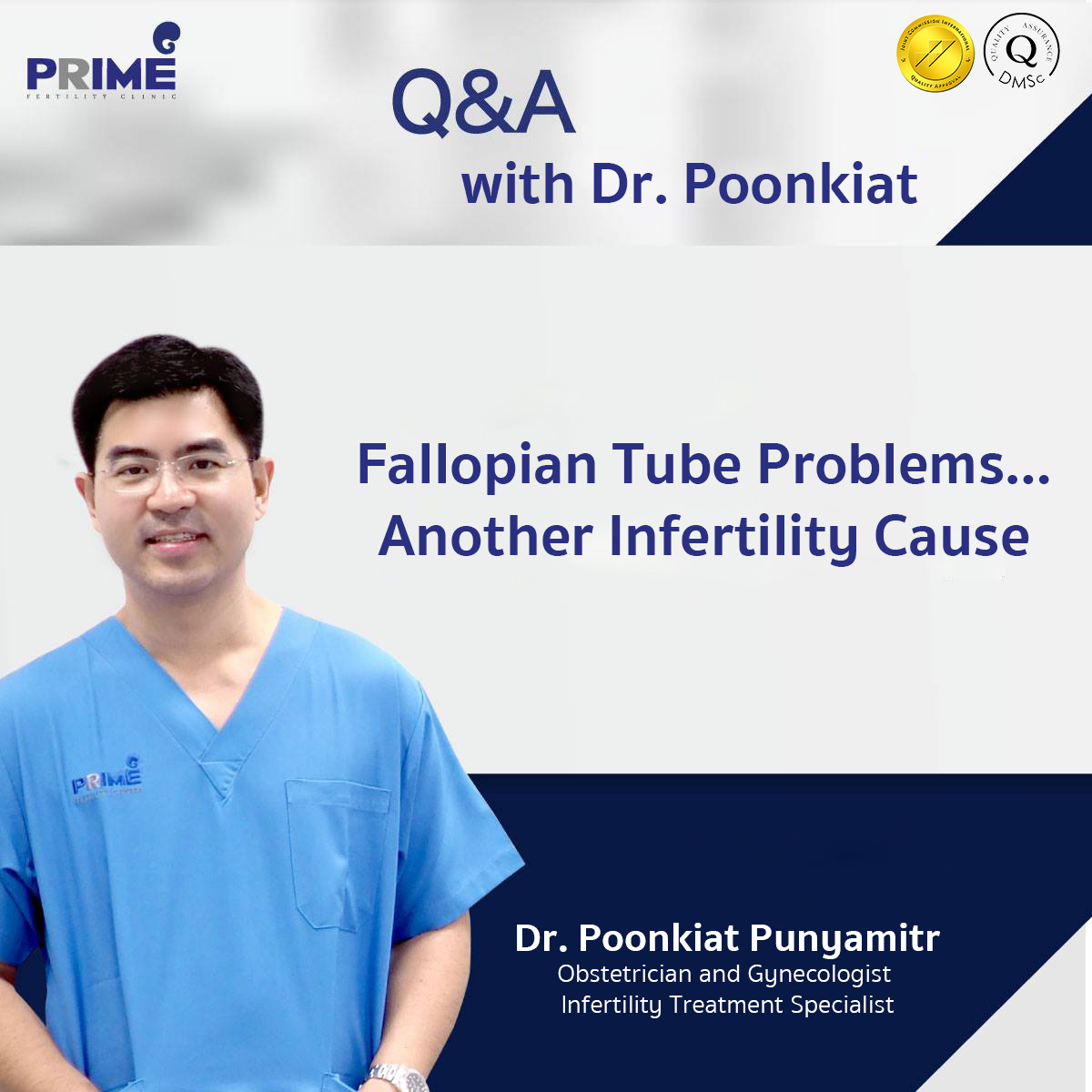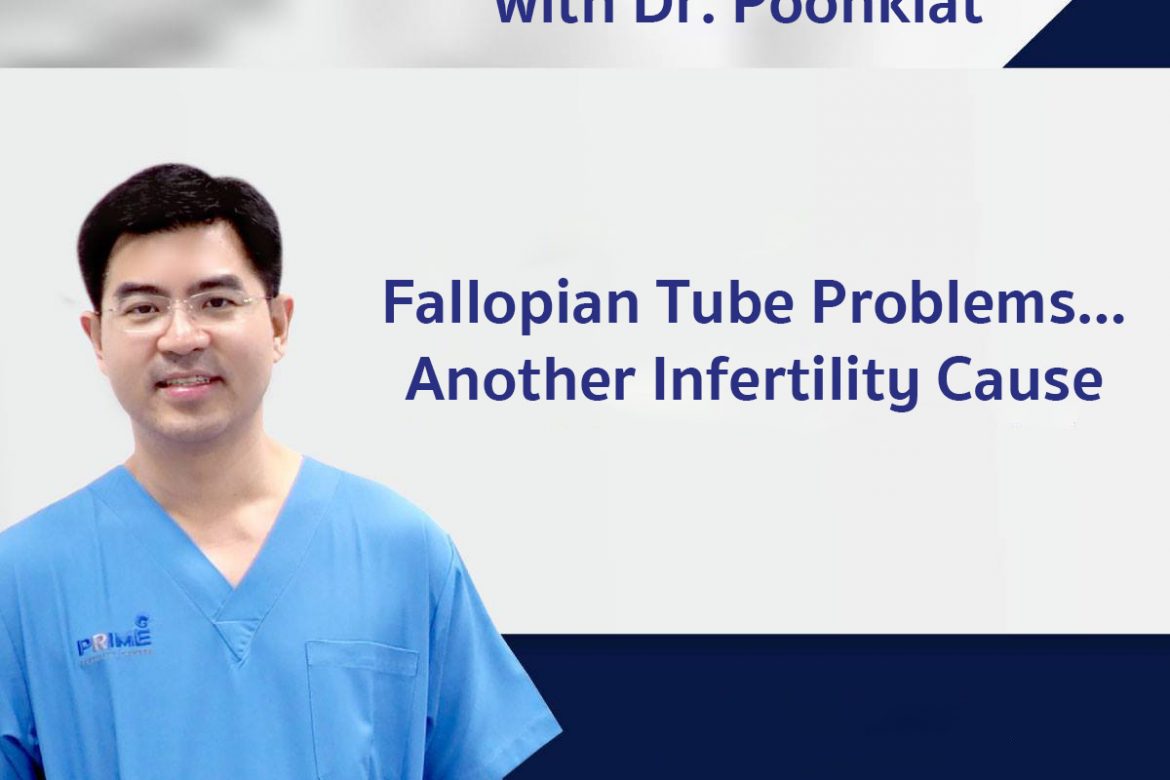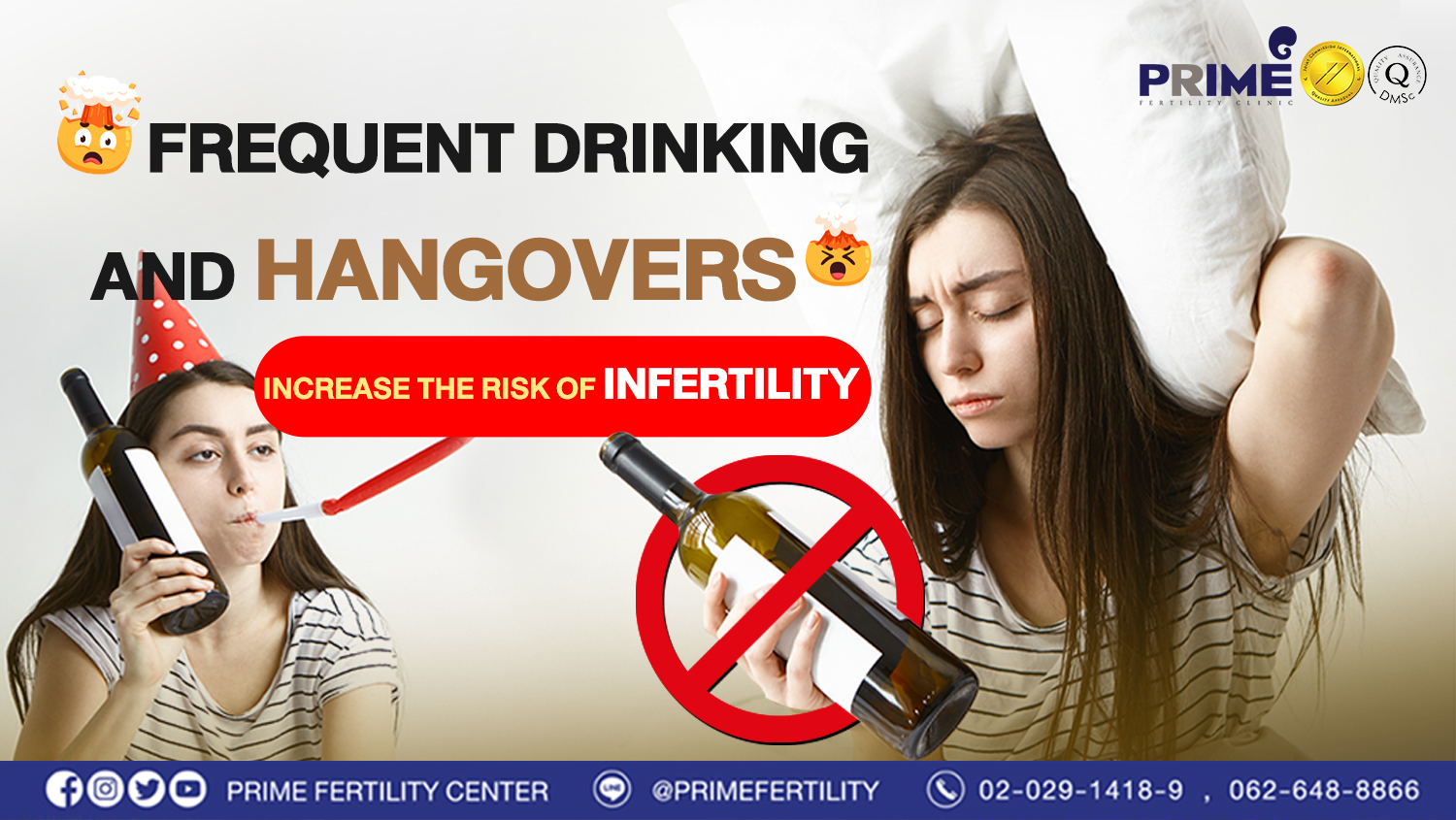Fallopian tubes, or oviducts, are small tubes located on both sides of the uterus. The trumpet’s bell-like shaped on the end part close to the ovary works as a pathway conveying eggs to the fallopian tube to fertilize with sperm.

Then transporting to implant in the uterine cavity and develop into a fetus. Therefore, if the fallopian tubes are constricted, blocked, and distorted, it can be an obstacle to conceive.
There are several possible causes of the fallopian tube problems, including:
- Fallopian tube agenesis, which is rarely found.
- Narrowed or blocked fallopian tubes, the abnormality inside fallopian tubes, the common causes are infection and inflammation in abdomen and pelvic cavity. This infection and inflammation can damage and block the fallopian tube and inside lining. The inflammation in the stomach can cause distorted or spiral folded fallopian tubes. Having appendectomy surgery, serious appendicitis, rupture appendix may also cause the inflammation to one or both fallopian tubes. Moreover, some diseases can be causes, such as a chocolate cyst with pelvic inflammation. The uterine fibroids can tighten or block the fallopian tube.
- Female sterilization. The sterilization makes blocked fallopian tubes. But female prefers to have children again or have more children after doing sterilization.
Mostly, patients visit a doctor because of the infertility problems. They will be asked about their medical history, received a physical checkup to assess fallopian tube problems, received an ultrasound test to evaluate swollen fallopian tubes, lumps as well as inquired for an abdominal inflammation history. The examination can be done by hysterosalpingography together with x-ray procedure to view whether the contrast material has passed into the fallopian tubes or not. Laparoscopic surgery is another way to examine the ovaries and fallopian tubes explicitly. With the laparoscopy, you can see the fallopian tube conditions and can inject the contrast material into the fallopian tube right away. For clear results, hysterosalpingography and x-ray will be required. For the advanced examination, the laparoscopic surgery together with hysterosalpingography under the administration of anesthesia will be performed. The doctor will have to check on each case for the most suitable method.
Therefore, we need to check the most suitable treatment for each patient. If the patients are not old and they are likely to conceive naturally or can be treated with IUI, we may evaluate their fallopian tube conditions, which might be helpful. However, if the patients are old or experienced the abdominal surgery, or found the possible fallopian tube problems due to their medical history and the primary diagnosis. We will perform thorough examination with this group. The hysterosalpingography and laparoscopic surgery are required. However, in the end, the solution would be IVF procedure. We may consider to skip the fallopian tubes examination then proceed the fertility treatment right away. So, the patients will not receive too much pain. We will need to consider the treatment plan for each patient because some patients may be infertile by many causes, such as the problem with the fallopian tubes, poor egg quality, low sperm quality. Finally, IVF is the solution. We don’t need to treat the fallopian tube problems but thoroughly check an individual medical record in order to select the correct treatment. Proceeding every examination will cause patients to waste time, get pain and spend on unnecessary costs. It is essential to concern about worthiness.
The blocked fallopian tube is a serious problem. The available treatment is only the in-vitro fertilization. Most patients do not know that their fallopian tubes are blocked or not, except they realized that they are infertile. Many factors cause infertility. Some causes could be solved by IUI, and some require IVF treatment. Most women with no history of pelvic infection, severe period pain, and abdominal surgery would have no blocked fallopian tubes.
The fallopian tube problems could be noticed by being infertile, having the history of various infections, abdominal surgery, severe infection, salpingitis, risk of infection from several curettages, abortion, severe period pain, chocolate cyst, ectopic pregnancy. As well as having many sexual partners or the sexual partner is at risk of sexually transmitted diseases, making this group has a greater risk.
Let me highlight that having fallopian tube problems can seriously affect fertility because the sperm could not approach the egg then the pregnancy could not happen. In case of severe inflammation on both sides of the fallopian tubes, the final treatment will be IVF. Since the natural fertilization or IUI is not possible. We will need to use a bypass method to allow the egg and sperm to meet outside human body and return it to female’s body. However, the patients can conceive even though they have the fallopian tube problems. By receiving treatment performed by the obstetrician together with using the assisted reproductive technology.
Should you think that you are at risk of having the blocked fallopian tubes or having infertility problems, please hurry up to consult with your infertility treatment specialist. In order to diagnose and find the suitable treatment respectively. Please do not leave it behind because the older you get, the lower your chance of having children would be.
Dr. Poonkiat Punyamitr
Obstetrician and Gynecologist
Infertility Treatment Specialist
–
Reference: Prime Fertility Center Co., Ltd.




